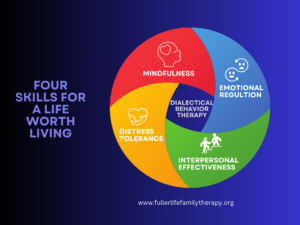Elevate Your Self-Care Routine: Beyond Bath Bombs and Manicures
Self-care is about nurturing ourselves on a deeper level, tending to our souls, and cultivating inner peace that radiates outward

Self-care is about nurturing ourselves on a deeper level, tending to our souls, and cultivating inner peace that radiates outward

In today’s fast-paced world, stress has become an inevitable aspect of daily life. From work deadlines to family responsibilities and societal expectations, our bodies…

Emotional Regulation skills help people manage their emotions, even though complete emotional control cannot be achieved. To a certain extent, people are who they are, however, people can learn to have more control.

Sandtray can be used in all modes of therapy and is extremely effective for working through trauma. The use of sand helps clients move more deeply into their issues than regular talk therapy.

Dr. Laurie Mintz coined the term Orgasm Gap to identify the fact that heterosexual men have many more orgasms than heterosexual women.

Foreplay is the erotic stimulation of the mind, body, and soul before sexual intercourse. Foreplay is not a wham-bam-thank-you-ma’am sexual encounter, quick sex without affection. Sex play enhances and provides sexual arousal, which could lead to orgasm.

Instead of giving in to the storm inside, you can learn to equip yourself with the strategy of R.A.I.N. This strategy enables us to apply mindfulness in a self-compassionate way.

Children who experience repeated insults, shame, or humiliation start to believe what they are told about themselves. More so, the mind and body start to try and cope with the trauma by disconnecting from the experience and body, which can lead to chronic psychological, physiological, and emotional issues and difficulties. These difficulties can impair a person’s overall functioning in childhood and adulthood.

Difficult Times As our nation and world around us is surrounded by news of the COVID 19 epidemic, it can be very easy to…
End of content
End of content
Life’s too short to stay stuck. Request an appointment now.
May is Mental Health Awareness Month
Would you like to get our monthly resources for mental wellness?